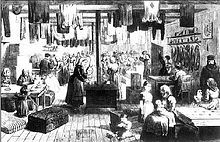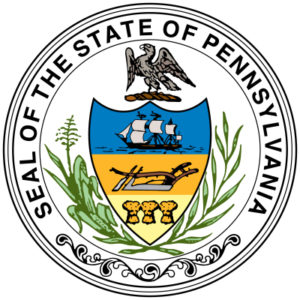When Did Pennsylvania Legalize Gambling
PGRI re-posted an article released by the Competitive Enterprise Institute on its blog detailing the successful legalization of online gambling in Pennsylvania. This past Monday, October 30, Pennsylvania Governor Tom Wolf signed a bill legalizing Internet gambling throughout the state. The move makes the Keystone State the fourth in the nation. Pennsylvania is the most populous US state with legal, regulated online gambling in 2020. The omnibus expansion package Gov. Tom Wolf signed into law in 2017 authorized interactive gaming across multiple verticals — including lottery, casino, fantasy sports, sports betting, and poker.
- When Did Pennsylvania Legalize Gambling Legalized
- Will Georgia Legalize Gambling
- When Did Pennsylvania Legalize Gambling Legislation
- When Did Pennsylvania Legalize Gambling Sports Betting
- When Did Pennsylvania Legalize Sports Betting

Pennsylvania’s regulated gambling industry dates back to 1959 when the state legalized horse racing, but it was the legalization of slot machines in 2004 and table games in 2010 that turned Pennsylvania into a true gaming state.

Despite its very short history as a gaming state, Pennsylvania has emerged as the second largest casino market in the country, trailing only the casino juggernaut that is Nevada in gross gaming revenue.
However, stagnant revenues and increased competition from neighboring states has Pennsylvania once again considering further expansion possibilities.
Horse racing in Pennsylvania
When Did Pennsylvania Legalize Gambling Legalized

In 1959, the Pennsylvania legislature passed the Race Horse Industry Reform Act. The bill legalized horse racing in the state, but it would take several years before dedicated horse racing tracks started popping up in the state. The oldest track still in operation is Meadows Racetrack and Casino, which first opened in 1963.
Horse racing in Pennsylvania had very deep roots (Stephen Foster’s ode to betting on the ponies, Camptown Races, was set in Pennsylvania) as horse racing thrived in the state throughout the 1700’s and 1800’s, even when prohibited by the legislature. But horse racing was eventually forced to throw up its hands in disgust at the state’s restrictions (limited to racing at fairs and other odd venues) in the 1900’s, and most Pennsylvania stables simply raced their thoroughbreds out of state.
By legalizing thoroughbred racing, the state kept that purse money in-state and was able to capitalize on the tax revenue the racing industry generated.
Slot machines in Pennsylvania
In 2002, gubernatorial candidate Ed Rendell made gaming expansion a centerpiece of his campaign. Rendell’s plan was to legalize slot machines and allow the state’s racetracks to apply for slot licenses, as well as creating a new license category for standalone slot casinos. Under Rendell’s plan, the revenue generated from the slot machines would go almost entirely towards easing property tax burdens and school funding, both of which were mounting concerns in the state.
The legislature passed a version of Rendell’s plan in 2004, which Rendell happily signed. Under the bill, up to seven racetracks could apply for slot licenses, and the state would create five stand-alone slot casino licenses, and three resort casino licenses.
Rendell noted at the time that slot machines wouldn’t be a panacea, but the revenue generated from slot machines (estimated at the time to be $3 billion a year) would tally about $1 billion a year for the state, on top of the one-time licensing fees the state would collect from potential casinos.

Table games in Pennsylvania
Will Georgia Legalize Gambling
The revenue from the slot machines was certainly helpful, and did offer a modicum of tax relief, but Rendell’s warning that slot machines wouldn’t be a panacea was realized within a few years, likely hastened by the economic collapse of 2008, and by 2010 the Pennsylvania legislature was looking at further gaming expansion to help close their growing budget deficit and rising property taxes.
The simplest and quickest fix would be the legalization of table games, and in 2010 the Pennsylvania legislature passed a bill that would allow the state’s existing casinos to add table games. Governor Rendell, the driving force behind slot expansion earlier in the decade, wasn’t a proponent of table games, but he did the sign the bill, making sure to tell reporters at the time that he had mixed feelings about it.
Rendell’s misgivings proved unfounded, as table games were seamlessly added to Pennsylvania’s existing casinos, and Pennsylvania has become the second largest gaming state thanks to the $3 billion in gross gaming revenue the state’s 12 casinos generate each year.
Online gambling in Pennsylvania
In 2013, led by State Senator Tina Davis, Pennsylvania started looking into online gambling, but it wasn’t until 2015 that iGaming talk really heated up.
Representative John Payne, the Chairman of the House Gaming Oversight Committee, led the charge for iGaming legalization in 2015. Payne hosted a series of hearings on the subject and crafted HB 649, a bill that would legalize online gambling in the Keystone State.
The Pennsylvania Senate also explored iGaming expansion and crafted a bill of its own, SB 900. The Senate bill included other potential gaming reforms but wasn’t as industry-friendly as Payne’s bill.
When Did Pennsylvania Legalize Gambling Legislation
Right now, there is still some hope that online gaming expansion will work its way into the 2015 state budget.
Future expansion
In addition to online gambling, the legislature also explored several other gaming reforms they felt could support the casino industry while also increasing state revenue.
When Did Pennsylvania Legalize Gambling Sports Betting
Among the gaming reform measures the legislature has discussed are:
When Did Pennsylvania Legalize Sports Betting
- Legalizing and regulating skill-based games.
- Adding slot machines to off-track betting terminals.
- Removing some restrictions on category 3 (resort casinos) license holders.
What will the future hold for gambling in Pennsylvania. It appears that more options — including online gambling — are in the cards. How quickly we see new gambling opportunities open up remains to be seen.
Photo by Steve Elgersma used under license CC BY-NC-ND 2.0